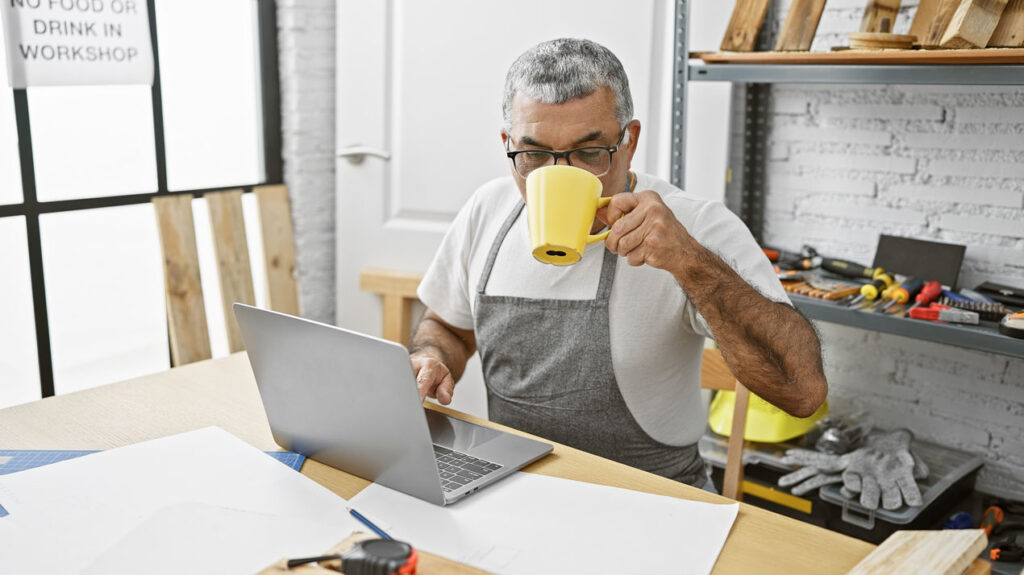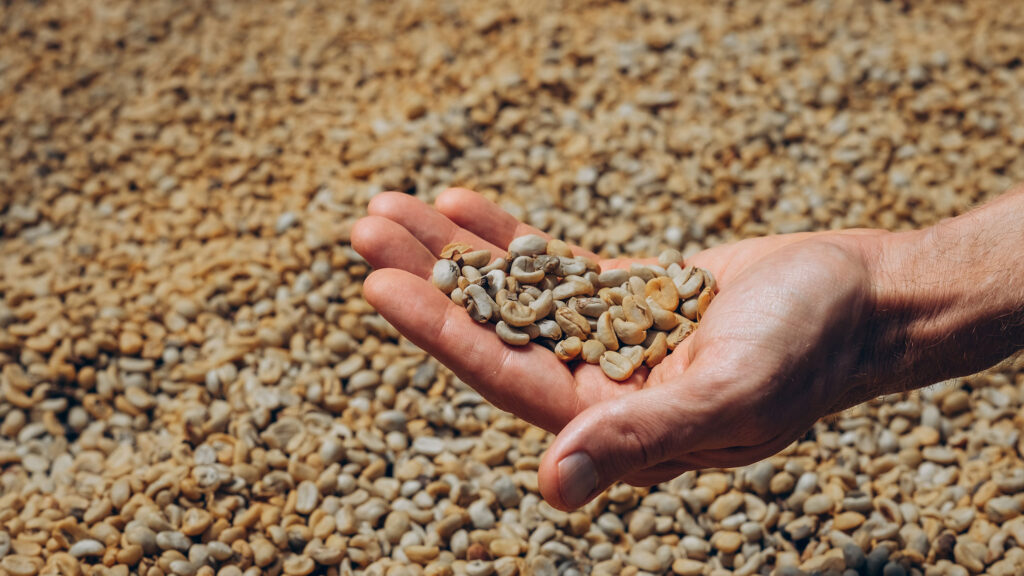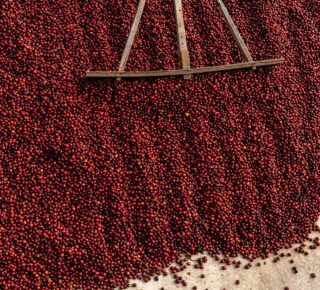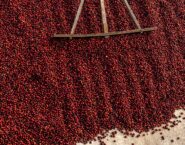
Decaffeinated coffee is a delicious option that ensures everyone can enjoy all the flavorful—and social—benefits of drinking coffee.
While more than 90% of American coffee drinkers go for its caffeinated counterpart,* those who choose decaf coffee can still reap the health benefits.
Independent scientific evidence shows that drinking decaf coffee, like drinking all kinds of coffee, is associated with increased longevity, decreased risk of multiple cancers and chronic diseases, and other unique benefits.
* past-day consumption among American adults aged 18+ (2025 National Coffee Data Trends Report, National Coffee Association)

Decaf vs regular coffee
Let’s tackle the big question first: how much caffeine is in decaf vs regular coffee? The decaffeination process typically removes around 97% of the caffeine naturally found in coffee beans, leaving approximately 2–15 mg of caffeine in your cup.
Sippable Fact
In a typical (8-ounce) cup …
Caffeinated coffee 95 mg caffeine
Decaf coffee 2–15 mg caffeine
How caffeine can fit into a healthy diet
According to regulators and health authorities in the United States and around the world, most adults can make up to 400 mg of caffeine a part of a healthy diet, although any individual coffee drinker will adjust that up or down according to their own preferences and tolerances. 400 mg of caffeine is about 2–3 cups (12 ounces each) of brewed coffee.
It’s important to note that guidelines on caffeine intake may vary for people with certain medical conditions—and that every person is different. To learn what’s right for your health, you should:
- Check health recommendations from recognized authorities
- Pay attention to how your body responds to caffeine
- Consult your healthcare provider
Caffeine is found in other foods and beverages as well, so be sure to consider all potential sources as you determine what’s best for you.
Of course, it’s also important to keep in mind that caffeine is found naturally in coffee—and coffee itself is associated with many health benefits. After all, decaffeinated coffee contains many of the same natural compounds as regular coffee—just without the caffeine!

Health benefits of decaf coffee
Decaf coffee—like all coffee—is associated with a number of significant health benefits, as shown by the vast majority of independent scientific evidence. These benefits include improved memory, cognition and mood; a reduced risk of heart disease, type 2 diabetes, multiple cancers, and other chronic diseases; and increased overall longevity.
One very large, well-designed study using UK Biobank data found that drinking 3 cups of any kind of coffee per day was associated with a 12% reduction in overall mortality, and the study specifies that “Similar associations were observed for instant, ground, and decaffeinated coffee…”
Numerous health authorities affirm the evidence that drinking coffee—caffeinated or decaf—is associated with significant health outcomes:
- The World Health Organization’s International Agency for Research on Cancer (IARC) determined that coffee is not likely to cause cancer and may be protective against some cancers.
- California’s state scientific agency, OEHHA, in separate reviews concluded: “A very large number of human studies, taken together, show inadequate evidence that drinking coffee causes cancer. Drinking coffee even appears to reduce the risk of liver cancer and endometrial cancer.”
- The American Cancer Society updated its dietary guidelines for cancer prevention in 2020 and concluded that coffee reduces the risk of skin, mouth, and throat cancer and likely reduces the risk of liver and endometrial cancer.
- The American Institute for Cancer Research recommends consuming coffee “regularly.”
- The World Cancer Research Fund says “…there is strong evidence that coffee decreases the risk of liver and womb cancers. There’s also some evidence that coffee decreases the risk of mouth, pharynx and larynx, and skin cancers.”

How decaf coffee is made
All coffee begins as green, unroasted beans. Then, all decaffeinated coffee is made through chemistry!
To remove around 97% of the caffeine found naturally in coffee, green coffee beans are warmed and soaked in liquid in one of four ways, all of which are equally safe and FDA compliant.
The most common is the European Method, which has five steps.
- The coffee beans are steamed to open their “pores” and make the caffeine more accessible.
- The beans are rinsed with a liquid solvent, which bonds to and removes caffeine.
- The liquid solution—which now contains the caffeine extracted from the beans—is removed.
- The caffeine is extracted from the rinsing solution for use in other products. Nearly 100% of the rinsing solution is captured and reused to decaffeinate more coffee beans, in a highly efficient, closed system.
- The decaffeinated coffee beans are dried and roasted, just like caffeinated coffee beans are roasted.

The safe, well-regulated decaffeination process
All methods of decaffeination rely on chemistry to extract caffeine naturally found in coffee beans, and all are authorized as safe by food safety regulators in the United States, Europe, and in countries around the world.
For decaf coffee made from the most common method, the European Method, the U.S. Food and Drug Administration (FDA) has set rigorous standards and has said that risk to consumers from drinking European Method decaf is “essentially non-existent.”
Across all decaffeination processes, once the (approximately) 97% of caffeine is removed from coffee beans, they are washed, steamed, and roasted at temperatures that evaporate any liquids used in the process.
Providing accurate, scientifically backed information on decaf coffee
Looking for information about the safety of decaf coffee? Learn why unscientific proposals by activists to ban decaf and to impose misleading warning labels should be rejected.
The National Coffee Association (NCA) has also detailed the evidence establishing the safety of European Method decaf in comments to the U.S. Food and Drug Administration (FDA), opposing a petition by activists seeking a federal decaf ban. NCA’s comment to FDA is available here.
Whether you like your coffee caffeinated or decaffeinated, explore different varieties, roasts, and brewing methods you might enjoy.





